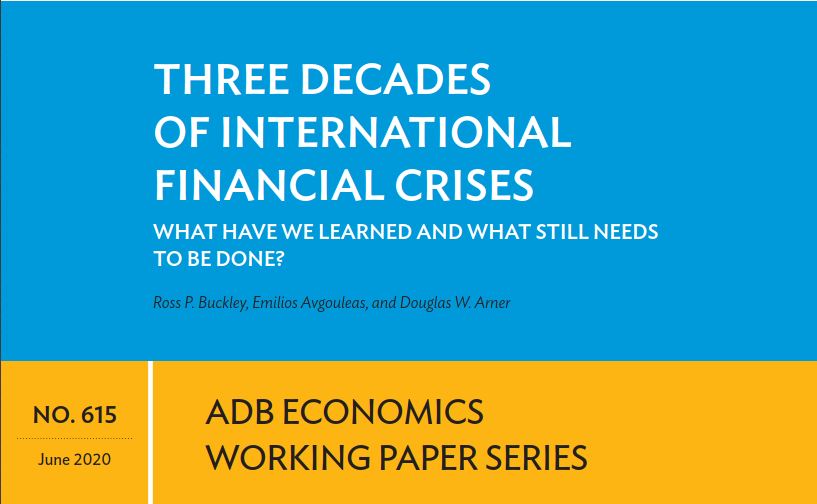Three Decades of International Financial Crises

Three Decades of International Financial Crises: What Have We Learned and What Still Needs to be Done? by Ross P. Buckley, Emilios Avgouleas, and Douglas W. Arner :: ADB Working Paper Series

Fragility that periodically erupts into a full-blown financial crisis appears to be an integral feature of market-based financial systems in spite of the emergence of sophisticated risk management tools and regulatory systems. If anything, the increased frequency of modern crises underscores how difficult it is to diversify away systemic risk and that perceptions of perfectly stable financial systems are normally flawed, even if the source of the next crisis remains well concealed to the expert eye.
Although it is impossible to forecast a financial crisis with a high degree of accuracy and certainty, earlier crises always leave lessons useful in preparation for future crises, from whatever source. It is thus clear that the best way to deal with preventing and addressing major financial crises is to build the defenses of the financial system, including effective institutions, while at the same time trying to identify potential sources of crisis. We should take every opportunity to learn and work to build stronger and more effective financial systems. This paper compares and contrasts the three major crises of the past 3 decades, both to distill the lessons to be learned from them and to identify what more can be done to strengthen our financial systems. As the world addresses the financial impact of the COVID-19 pandemic, the centrality of these lessons is clear.



